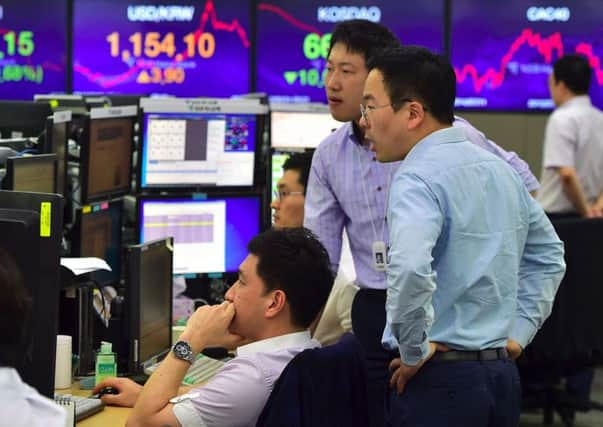Praise mixed with concern as foreign leaders react to Brexit


US president Barack Obama, who had warned Britain would be at the “back of the queue” for a trade deal in the event of Brexit, insisted the “special relationship” between the UK and Washington will continue.
He added: “The United Kingdom and the European Union will remain indispensable partners of the United States even as they begin negotiating their ongoing relationship to ensure continued stability, security, and prosperity for Europe, Great Britain and Northern Ireland, and the world.”
Advertisement
Hide AdAdvertisement
Hide AdHillary Clinton, who aims to be America’s next Democratic president, said: “This time of uncertainty underscores the need for calm, steady, experienced leadership.”
Speaking at his revamped Turnberry golf course in Ayrshire, the Brexit-backer and Republican hopeful Donald Trump applauded theresult, saying: “They took their country back. It’s a great thing.”
He added: “People are angry all over the world,” adding that worries about borders helped the Brexit vote.
But Russian president Vladimir Putin said Britain’s vote reflected growing concerns about immigration and security and was a response to unhappiness with Brussels bureaucracy.
He said Brexit would have both “positive and negative” consequences for Russia and the rest of the world, adding: “Life will show us whether there are more pluses or minuses.”
But he condemned David Cameron for accusing him of backing Brexit, saying the British prime minister’s warning that leaving the EU would please the Kremlin was “the lowest level” of politics.
Dmitry Peskov, Vladimir Putin’s press secretary, said Brexit may not impact the EU’s confrontation with Russia over Ukraine and Crimea. “Whether Britain is in the EU or not, there are very different views in Europe with regard to sanctions policy and its effectiveness,” he said.
Petro Poroshenko, president of Ukraine, said the most urgent challenge the EU now faced was “finding a way to the hearts and minds of Eurosceptics in order not to leave a single chance to opponents of the European integration project”.
Advertisement
Hide AdAdvertisement
Hide AdJapanese prime minister Shinzo Abe said he was “very concerned over the risks to the global economy, and financial and exchange markets”.
Hua Chunying, of the Chinese foreign ministry, was more optimistic, saying: “A prosperous Europe is in the interests of all parties and China is willing to keep co-operating with Britain and is fully confident in China-EU ties.”
In Israel, those on the right believe the move will weaken the EU and reduce European pressure on Israel over the occupation of the West Bank, local media reported.
South Korea reacted to Britain’s decision to leave the EU by announcing it is willing to consider a bilateral free trade deal with the UK.
Yun Byung-sa, the South Korean foreign minister, said his ministry will draw up “various measures”, including a possible free trade deal with London, Yonhap News reported.
Najib Abdul Razak, prime minister of Malaysia, warned: “There will be testing times ahead for the UK. But the British people should know that one old friend will always be with them, as they open a new chapter in their long history.”
Indian finance minister Arun Jaitley said: “In this globalised world, volatility and uncertainty are the new norms. This verdict will further contribute to such volatility not least because its full implications are still uncertain.”
And Lee Hsien Loong, prime minister of Singapore, said: “The desire to disengage, to be less constrained by one’s partners, to be free to do things entirely as one chooses, is entirely understandable. And yet in reality for many countries, this will likely lead to less security, less prosperity, and a dimmer future.”
Advertisement
Hide AdAdvertisement
Hide AdMalcolm Turnbull, Australian prime minister, said: “We’ve seen already large falls on stock markets and there will be a degree of uncertainty for some time.”
And Justin Trudeau, prime minister of Canada, said: “The UK and the EU are important strategic partners for Canada with whom we enjoy deep historical ties and common values.”